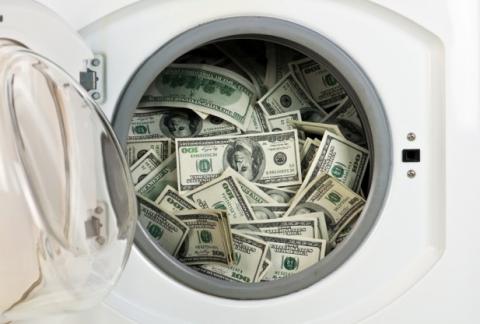Special prosecutor Robert Mueller, appointed to lead the probe of alleged Russian meddling in the 2016 presidential election, is reportedly examining whether or not President Donald Trump’s associates violated money laundering laws. That scrutiny is hardly unfamiliar to Trump, as his business empire has been repeatedly sanctioned for violating those statutes. He even at one point pressed regulators to weaken the rules.
In 1993, the Associated Press reported that two of Trump’s Atlantic City casinos were fined by Treasury Department regulators for “willfully failing to report” transactions involving more than $10,000 — a violation of the Bank Secrecy Act (BSA). Five years later, the department fined Trump Taj Mahal Associates, the company managing the eponymous Atlantic City casino, for violating the same law, which was created in 1970 to help combat money laundering.
More recently, in March 2015, three months before Trump announced his bid for the presidency, regulators fined the same casino $10 million. Trump had severed his relationship with the now-defunct Taj Mahal when he sold it to billionaire investor Carl Icahn in 2016, a move to try and save the casino following a series of bankruptcies. According to a Treasury Department press release announcing the March 2015 charges, the regulator had imposed the penalty “for willful and repeated violations of the Bank Secrecy Act… dating back to 2003” — during the time Trump was running the company.
In a Treasury Department document enumerating the 2015 charges, regulators said Trump Taj Mahal Associates and the Taj Mahal Casino “failed to implement and maintain an effective anti-money laundering program; (b) failed to report suspicious activity related to several financial transactions at the casino; (c) failed to properly file Currency Transaction Reports; and (d) failed to keep appropriate records as required by the BSA and its implementing regulations.”
Congressional Republicans are currently pushing a bill that critics say would complicate federal regulators’ efforts to combat money laundering. While some experts believe the Trump administration will not move to weaken anti-money-laundering regulations, the Trump Organization fought some of those regulations a little more than a decade ago.
In 2006, the George W. Bush administration proposed updates to the BSA that would impose stricter reporting requirements for casino transactions. The new amendments to the BSA, as proposed in March of that year, would broaden financial reporting by the casinos to include “bills inserted into electronic gaming devices” and update the law’s wording “with terminology that is more current and commonly used” in the casino industry.
In response, a top Trump official pressed regulators to drop both of those changes. In a letter to regulators, Trump Entertainment Resorts Vice President of Legal Affairs Pat Agnellini argued that the reporting “process would be so cumbersome.” The executive also asserted that electronic gaming “would not be a conduit for money laundering and therefore, any minimal benefit would be dramatically outweighed by the cost of any potential programming fix.”
David Sirota (https://twitter.com/davidsirota) is International Business Times' senior editor for investigations. He is also a nationally syndicated newspaper columnist and a bestselling author. Lydia O'Neal (https://twitter.com/@LydsONeal) is a breaking news reporter from Philadelphia and an Emory University graduate in French and economics. She specializes in business news and has written for CNN, Consumer Reports, the Philadelphia Inquirer, and the Allentown Morning Call.


Spread the word